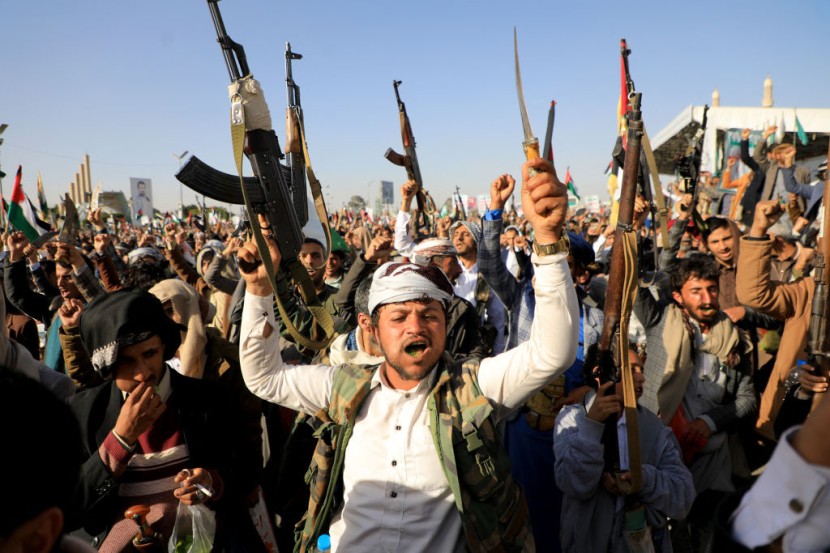On Thursday, the United States and the United Kingdom announced new sanctions on senior Houthi leaders in Yemen as the group vowed to continue its attacks on commercial shipping in the Red Sea.
Attacks by the Iranian-linked Houthis have hampered global shipping and stoked fears of global inflation. They have also increased concern that the Middle East may become unstable due to the aftermath of the Israel-Hamas conflict.

The US and UK said on Thursday that four key Houthi officials are the target of the sanctions over their roles in supporting or directing attacks on commercial shipping in the Red Sea.
"The Houthis' persistent terrorist attacks on merchant vessels and their civilian crews threaten to disrupt international supply chains and the freedom of navigation," Brian Nelson, the US Treasury's undersecretary for terrorism and financial intelligence, said.
Nelson noted that today's joint action with the UK demonstrates their collective action to leverage all authorities to stop the Red Sea shipping attacks.
Those punished were Houthi Defense Minister Mohamed Nasser al-Atifi, Commander of Houthi Naval Forces Muhammad Fadl Abd al-Nabi, Coastal Defense Forces Chief Muhammad Ali al-Qadiri, and Muhammed Ahmad al-Talibi, whom the two governments identified as the Houthi forces' director of procurement.
The UK said the four leaders were involved in acts that threatened the peace, security, and stability of Yemen.
British Foreign Secretary David Cameron claimed that the restrictions reinforced their clear message to the Houthis in recent weeks and also pledged to target those behind the unacceptable and illegal actions against shipping.
The sanctions have come as Houthi commander Abdel-Malek al-Houthi vowed to continue the strikes that have disrupted international commerce in the Red Sea and the Gulf of Aden.
On Thursday, al-Houthi said in a televised speech that their country will continue its operations until food and medicine have reached the people of Gaza.
US, UK Strike Houthi Sites in Yemen
On Monday, a fresh wave of attacks targeted a Houthi underground storage site as well as missile and surveillance systems used by the Iran-linked group against Red Sea shipping.
The Houthi attacks have interrupted international commerce along a route that accounts for about 15 percent of the world's shipping traffic. Several shipping companies have redirected their ships to avoid the southern tip of Africa, resulting in longer delivery time and an additional 3,000-3,500 nautical miles (6,000km) to their route.
Earlier this month, the US also redesignated the Houthis as "Specially Designated Global Terrorists" (SDGTs), a designation given to those who are considered to "threaten the security of the US."
Thousands of people have protested to show support for Palestinians in Gaza in the streets of Sanaa, the capital of Yemen, and other towns in response to the designation and the US and British attacks against targets in Yemen.
© 2026 HNGN, All rights reserved. Do not reproduce without permission.








